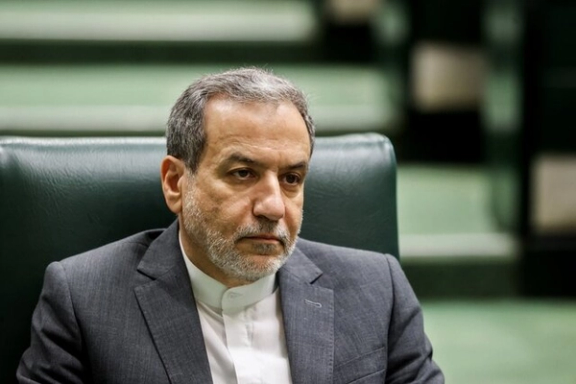Iran reaffirms full support for proxies, while avoiding direct conflict

Iran’s new Foreign Minister Abbas Araghchi told state television that Tehran will fully back its ‘Resistance Front’ in the region by providing “unlimited support,” as Israel tries to fully defeat the Palestinian Hamas.
“The government’s policy is to provide unlimited support to the resistance. We will support the resistance front, which has established itself as a reality in the region. The regime [Israel] has so far failed to achieve its main goal of destroying Hamas,” Araghchi stated.
However, the foreign minister signaled that Tehran is reluctant to get directly involved in a wider conflict. According to Tasnim website affiliated with Iran’s Revolutionary Guard, he maintained that Iran would continue its support for the Resistance Front but “remains vigilant against traps that might be set to draw us into the conflict. We are monitoring regional developments with intelligence and awareness.”
Speaking about foreign policy, Araghchi highlighted relations with neighbors, in the absence of a real chance to resolve issues with West at this juncture. “We seek comprehensive and balanced diplomacy and aim to expand our communications. My colleagues are currently planning. When a head of state makes their first visit to a country, it signifies importance to us. The message of the President’s visit to Iraq was that our priority is first and foremost our neighbors.”
The foreign minister did not indicate any current discussions with the United States, noting that the Americans are in the midst of an election season. However, he announced that Iran is ready to engage in discussions with Europe "on the basis of equality."
“Europeans need to understand Iran’s concerns. If they have concerns, so do we. We have issues with Europe regarding sanctions and economic matters. Using failed tools is not the solution. Various sanctions were imposed on the nuclear program before, but they had to come to the negotiating table. It is clear that sanctions have failed,” Araghchi argued.
Despite the occasional denials by Iranian officials about the impact of sanctions, Iran’s economic crisis continues to deepen. Bread prices were more than doubled recently and politicians and experts warn of a much larger budget deficit in the coming fiscal year starting in March 2025.
Araghchi talked about the latest contentious issue of ballistic missile deliveries to Russia that have seriously alarmed the United States and its European allies, who have issued more targeted sanctions.
Araghchi appeared to be using the issue as a quid-pro-quo with Europe, not outright denying the accusation. “They are concerned about Iran exporting advanced weapons to Ukraine. If Europe is genuinely concerned, the solution is dignified dialogue. It is not reasonable to expect that their concerns will be addressed unilaterally. We are ready to engage in dialogue with Europe. Currently, establishing relations with Europe is not a priority for us,” the Iranian foreign minister stated.
Earlier this month, Western government began warning that Iran was delivering 200 short-range Fath-360 ballistic missiles to Russia for use in its war against Ukraine. Tehran earlier issued vague denials, but some lawmakers confirmed the news. Also, Iran's delivery of thousands of kamikaze drones to Russia since mid-2022 make the Western accusation more credible. The use of these drones against non-military targets are well documented and even Tehran, after some denials, has claimed that the weapons were delivered before Russia’s invasion of Ukraine.